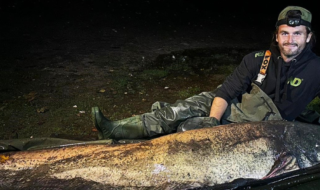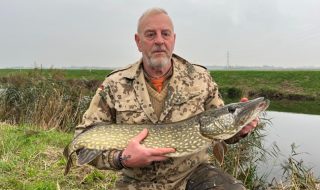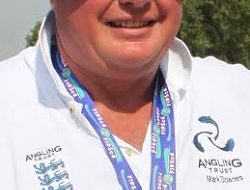Fish Legal has won an historic injunction against a multi-million pound hydropower development on the River Trent at Sawley Weir, in the process exposing major failings in the regulatory process.
The membership association Fish Legal, acting for its member the Pride of Derby Angling Association (PDAA), has won the biggest case in its 64 year history by securing an injunction to stop impending construction of a flagship hydropower scheme at Sawley Weir on the River Trent.
The case was heard at a four day trial in Nottingham County Court against developers the Small Hydro Company and the Canal and River Trust (CRT – previously known as British Waterways).
Fish Legal’s expert lawyers and legal counsel fought the case on the grounds that the development would have destroyed the PDAA’s 1,200 members’ enjoyment of their prime stretch of river fishing on which they own the freehold rights. The Judge found that the developers and the CRT did not consult with the PDAA until very late in the planning process, and that they should have made much more careful enquiries about the fishing rights at the outset. Indeed it appears that the company and the waterways charity CRT turned a blind eye to those rights in an attempt to sideline those with most to lose from the scheme – anglers.
The Judge recognised that they either ignored or were aware of the risks, both to the scheme and the fishing rights, but they pushed forward with their plans anyway.If the scheme had gone ahead, the natural riverbanks would have been transformed into a 150 metre-long concrete and steel industrial facility with floodlights and alarms sounding off at intervals.
Anglers were expected to access their fishing via a locked security gate into a fenced compound and to perch themselves and their equipment on a series of metal platforms suspended up to eight feet above the river. The developer’s own health and safety witness conceded in court that this would put them “at risk of death”. The Judge ruled that the club should not be forced against its will to accept the proposal at the expense of its valuable fishing rights and that the scheme should not go ahead.
The company had tried to pressurise the club to accept its plan and, in spite of the anglers’ objections, pressed ahead with seeking an Impoundment Licence for the development from the Environment Agency (EA), which was granted. The EA’s decision to grant the licence has been roundly criticised by Fish Legal and the Angling Trust as a failure of the regulator to fulfil its statutory duty to consider and give due weight to fisheries when granting impoundment licences. In this case, its ‘consideration’ was limited to a single (unclear) sentence: “Part of Pride of Derby’s fishery lies within the weir pool affected i.e. increased periods of reduced flow during operation of the turbine”. This minimal level of attention is utterly inadequate from a public body which has a statutory duty to maintain, improve and develop fisheries (i.e. angling) and the Judge’s decision that the fishing rights would be significantly harmed demonstrates the EA’s failure in this regard. What’s more, by granting the licence, the EA handed the company a statutory defence to any claims against it for damage to the fishery caused by modifying water levels and flow rates.
Fish Legal therefore had to limit its civil legal action to the narrower point of the impact on the club’s access to the fishery and the physical ability of its members to fish there, but they still won the case.The scheme at Sawley was one of many being planned in the region by the Small Hydro Company, but there are also hundreds of others planned across the country by other private companies, often backed by private equity and major financial institutions, who are engaged in a gold rush to make profits from generating hydropower principally because of generous feed in tariffs from the taxpayer. Even if all the 26,000 sites identified by the EA which might be suitable for hydropower were to be developed, they would still generate less than 0.5% of the nation’s electricity supply but would have a major strategic impact on fish and fishing. Low head hydropower therefore makes a negligible contribution to tackling climate change, but has a very significant impact on freshwater ecology.
Taxpayers’ funds would be far better spent on promoting energy efficiency, where no such unequal ‘tradeoffs’ are required. The club would never have been able to fight the case without the support of Fish Legal, which met all the costs and risks, which could have totalled hundreds of thousands of pounds if the developers had won. This is only possible because of the fighting fund accumulated over decades from the donations and membership subscriptions of tens of thousands of anglers and angling clubs.
There is no chance that the club could have stood up to the might of the developers and their expensive lawyers without Fish Legal’s unique legal protection (an appeal, which would increase the legal costs yet further, is still possible).Coincidentally, Fish Legal (then called the Anglers’ Co-operative Association) was founded back in 1948 shortly before winning a landmark case against pollution for the Pride of Derby Angling Association against British Celanese Ltd in 1952, and then on appeal to the Court of Appeal. PDAA member George Elliott joined the ACA at the time and is still an individual member of Fish Legal and the Angling Trust to this day.
George Elliott said: “Thankfully Fish Legal was able to defend our fishing from this terrible development. I have fished at Sawley weir for decades and have caught barbel, pike, carp, chub, dace, perch and roach from the weirpool. I am so pleased that we will be able to carry on fishing there in the future. It was quite ridiculous to suggest that we should have to fish from metal platforms above the river. Every angler should be a member of the Angling Trust and Fish Legal – together they take action to protect our fish and fishing.
”Andrew Kelton, Fish Legal Solicitor, said: “I hope that developers will learn from this landmark case that it is vitally important to discuss any proposals at the earliest possible stage with angling clubs who own or lease fishing rights on rivers. If they don’t, they could find themselves in court and having to tear up their expensive plans.
”Mark Lloyd, chief executive of Fish Legal and the Angling Trust said: “We are delighted to have been able to defend one of our member angling clubs in this historic case against an aggressive developer, who was granted an impoundment licence by the so-called Environment Agency to spoil a beautiful river and a prime fishing spot with an ugly, environmentally-damaging turbine purely to turn a profit out of taxpayers’ subsidies. Even a thousand of these schemes would make a negligible contribution to tackling climate change, but each one would have a significant impact on the water environment.
”Keith Fisher, the Vice Chairman of the angling association, having been questioned for three hours in court by the developers’ QC, said that: “it was a relief that it was all over and that the bully boy tactics used by the developers had not won through”
Alan Miller the secretary of the Pride of Derby Angling Association said: “It’s quite a relief that we have won and this special place for fishing is protected for future generations of our members. Some of our members travel considerable distances to fish at this spot. We are truly grateful for all the hard work and dedication that has been put in by the Fish Legal team”.





